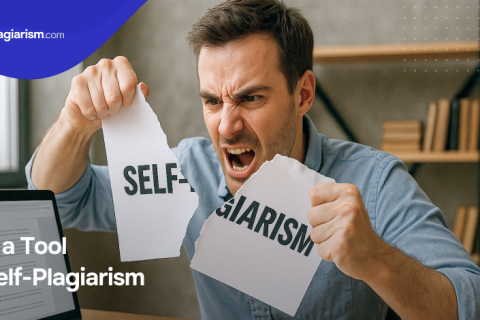How can I avoid plagiarizing?
27 Mar 2015
Plagiarism is a word that is absolutely unwelcome in the world in all fields. It is a very wrong, unethical and bad practice. The very word signifies copying, unoriginality and absolute dishonesty. You may wonder as to what this word means. In simple terms it is the copying or stealing of another person’s thoughts and ideas. This is the very basic and general meaning of this word. In the academic world however, this word is hated more and absolutely detested. Here it has a more specific meaning than the general one. Plagiarism here means the copying of another academic’s thoughts, ideas and maybe even the basic language used by him or her. Academic research nowadays requires for fresh thoughts and ideas to be put forward. Many of the researchers are able to achieve this by thinking freely by themselves. Sadly, however, many others mainly students in today’s times are cheating these people by copying from them. Such an act belittles the effort, thought and hard work put in by the original author of the work. Hence, one should totally avoid plagiarism by all means.
Another different and a totally opposite aspect from plagiarism is a citation. A citation, in simple terms, is a reference to any of the thoughts, ideas, work or language of a previously published author that one might use in his or her work/research. Why is this word so different from the word mentioned above? This is because while plagiarism is an absolutely wrong and unethical act of copying or stealing of another person’s thoughts or ideas, a citation is not so. A citation is in fact much more similar to respecting and acknowledging of another person’s ideas. When a citation is given, the person giving the citation is very clearly stating the work to be someone else’s and not claiming that it is his/her. The person is acknowledging the previous author’s work and thus doing a very respectable thing. This is why a citation is so different and using it is not wrong at all. While many mentors of students would want them to avoid or use as less citations as possible, this is not entirely right. A citation, in fact ought not to be used too much nor too less. The reason why mentors would want students to avoid using citations is because they feel it would be nothing short of plagiarism. They believe that this only shows copying from another person’s work and shows unoriginality of the student. They further believe that doing so only hinders and restricts the original and fresh thinking of the students.
A citation can be a wonderful tool to be used in a student’s work. The following methods can help avoid any sort of plagiarism in a student’s work. Firstly, do not hesitate to use citations. One should never use too many or too less of citations but just the right amount, that too wherever required. A student should use citation as and when required to support his or her ideas. Students state many points in their work, whatever these thoughts and ideas may be. However these points need to be backed by serious evidence and reasons. This is where citations come in. These act as evidence to the student’s work as they are concrete proofs and they justify the student’s work. This is because they are the works of the experts who have put them forward. Not only this, but putting in a citation makes the work look professional and not amateurish. It just shows that the student has understood the purpose and material of the research project assigned to him or her. The only thing to be kept in mind is that the original thoughts and ideas of the student and the citations being given to support them ought to be kept different to avoid plagiarism.
Secondly, one should keep all details of all the information being collected. Whenever referring to any previous author’s work, one should not only refer to the knowledge but should also make a note of the author and other details. This only helps the student to later refer to this and put it forward in his or her project as a citation. The work ought to be referred to for the sake of understanding it and for helping the thinking process. Apart from this however, one should think and use a different language and a different approach for stating one’s ideas. Finally the author should be mentioned for the reference taken from his/her work in the assignment. Thirdly, the student should clearly differentiate in the paper between his/her own ideas and the author’s ideas by putting them in quotes to clearly show them to be someone else’s. These methods will help students to avoid plagiarism of all sorts.






